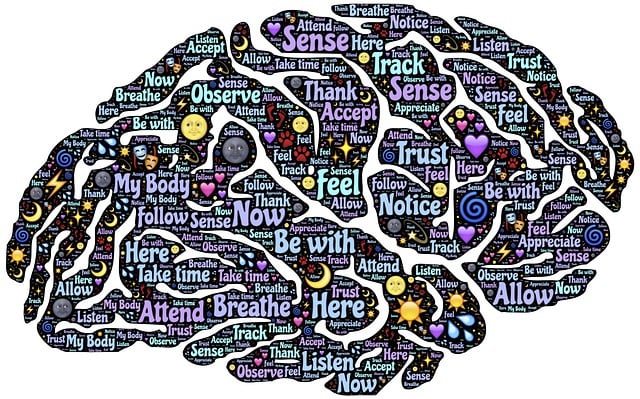Risk assessment and harm minimization strategies are crucial for ensuring safe and effective therapy for young adults who have experienced abuse. Through personalized support systems, therapists can address past traumas, current stressors, and social networks, implementing tailored stress management techniques and stigma reduction strategies. This multi-faceted approach includes empathetic communication methods, creating a safe therapeutic environment, and extending support through Mental Wellness Podcast Series. The ultimate goal is to empower survivors, fostering emotional intelligence, connection, and personalized self-care practices for healing and growth in therapy for Young Adults Abuse Survivors. Continuous monitoring, open communication, and resilience-building activities ensure ongoing safety and well-being.
Risk assessment and harm minimization planning are essential components of supporting therapy for young adults who have experienced abuse. This comprehensive guide explores critical strategies to ensure survivor safety and well-being. We delve into understanding potential hazards, implementing protective measures tailored to individual needs, and monitoring progress continuously. By integrating these approaches, therapists can foster a secure environment, empowering survivors to navigate their healing journey effectively. Discover how these methods revolutionize care for young adult abuse survivors in therapy.
- Understanding Risk Assessment: Uncovering Potential Hazards for Survivors
- Harm Minimization Strategies: Protecting Young Adult Survivors in Therapy
- Creating a Comprehensive Plan: Tailoring Approaches to Individual Needs
- Implementation and Monitoring: Ensuring Safety and Support Throughout the Journey
Understanding Risk Assessment: Uncovering Potential Hazards for Survivors

Risk assessment is a critical component of harm minimization planning for therapy for young adults abuse survivors. By meticulously uncovering potential hazards and their underlying causes, therapists can create a safe and supportive environment tailored to each individual’s unique needs. This process involves a comprehensive evaluation of various factors, such as past traumas, current stressors, and social support systems, all of which contribute to the overall risk profile of the survivor.
Understanding these risks is key to implementing effective stress management and reduction methods, including those designed to combat mental illness stigma reduction efforts. Through this detailed assessment, therapists can identify specific triggers and develop strategies to mitigate potential harm, fostering a sense of security and empowerment among survivors as they navigate their therapeutic journey.
Harm Minimization Strategies: Protecting Young Adult Survivors in Therapy

Harm Minimization Strategies play a pivotal role in protecting and supporting Young Adult Survivors engaged in Therapy for Adult Abuse. This approach involves a multi-faceted strategy aimed at minimizing potential harm while fostering a safe therapeutic environment. Mental health professionals must be adept at integrating these strategies into their Risk Management Planning, ensuring every survivor feels secure and supported throughout the process.
Effective Communication Strategies are essential tools within this framework. Therapists can utilize open dialogue, active listening, and empathy to create a non-judgmental space for survivors to express their fears and concerns. This open line of communication not only helps in identifying potential risks but also allows professionals to implement timely interventions. Moreover, integrating these harm minimization techniques into the production of Mental Wellness Podcast Series can further reach and engage survivors, offering them accessible resources while promoting mental wellness.
Creating a Comprehensive Plan: Tailoring Approaches to Individual Needs

Creating a comprehensive harm minimization plan is essential when supporting young adults who are survivors of abuse. This involves tailoring therapeutic approaches to meet individual needs, recognizing that each person’s journey and experiences are unique. Therapy for Young Adults Abuse Survivors should focus on providing a safe and non-judgmental space where clients feel empowered to share their stories and begin the process of healing.
Empathy building strategies and emotional intelligence techniques play a crucial role in this process. By fostering understanding and connection, therapists can help clients develop self-care practices that address specific challenges they face due to past traumas. This personalized approach ensures that the harm minimization plan is not one-size-fits-all but rather adapted to support each individual’s growth and recovery.
Implementation and Monitoring: Ensuring Safety and Support Throughout the Journey

Implementing a comprehensive risk assessment plan is only the first step in supporting young adults who have survived abuse. To ensure ongoing safety and well-being, continuous monitoring is essential. This involves establishing regular check-ins with survivors to gauge their emotional state, identify any emerging risks, and provide timely interventions. A supportive network of therapists, caregivers, and peers can play a crucial role in this process.
By fostering an environment that encourages open communication and promotes resilience-building activities such as mental wellness journaling exercises, survivors can develop confidence boosting coping mechanisms. This holistic approach leverages therapy for young adults abuse survivors, empowering them to navigate challenges and lead fulfilling lives.
Risk assessment and harm minimization planning are pivotal components in providing effective therapy for young adult abuse survivors. By understanding potential hazards, implementing tailored strategies, and continuously monitoring progress, support systems can ensure a safer, more supportive journey towards healing. This comprehensive approach not only protects survivors but also empowers them to navigate their therapeutic path with increased confidence and resilience.














